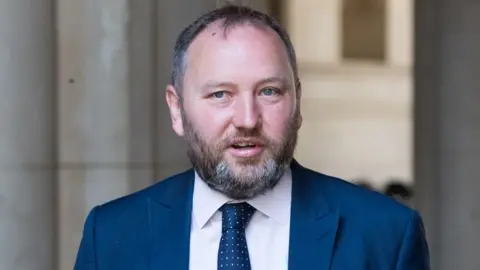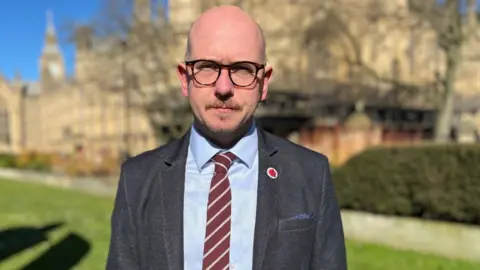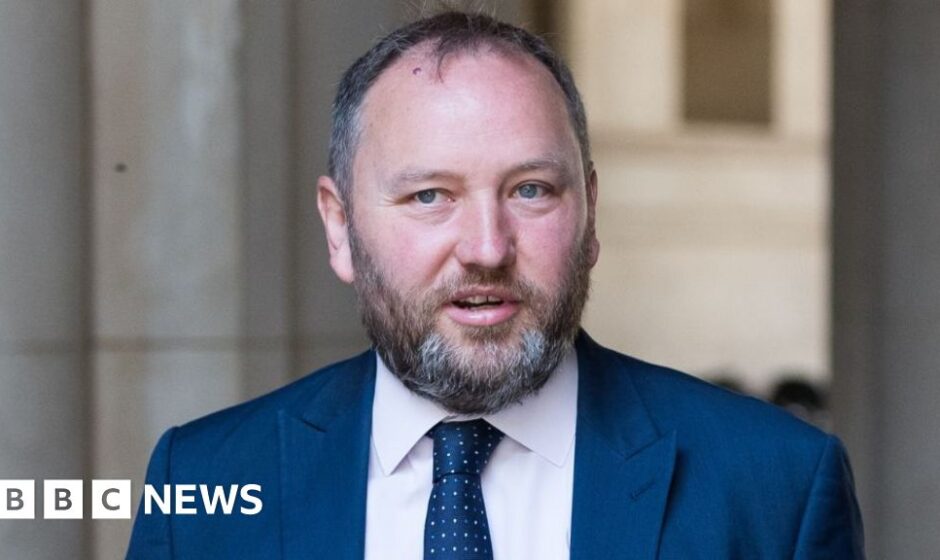 Getty Images
Getty ImagesThe UK’s welfare system will “explode” and become unaffordable if it is not reformed, Scottish Secretary Ian Murray has said.
Sir Keir Starmer’s government has been forced into a series of climbdowns on its benefits bill by Labour backbenchers at Westminster.
Murray insisted that “really positive, progressive” changes were being made to fix a “broken” system.
It comes after First Minister John Swinney accused the UK government of taking an “absolutely appalling” approach to reform.
Labour ministers were forced to U-turn on some cuts to Universal Credit and plans to introduce stricter eligibility rules for personal independence payment (Pip) claimants.
The changes to Pip would not have directly applied in Scotland, where the benefit is being phased out for a devolved alternative but could have affected the amount of money allocated to Holyrood.
Despite being gutted of its most significant measures, Murray said the bill would make important changes to Universal Credit and employability support, and that Pip would be reformed after the publication of a government review late next year.
“These are really positive progressive reforms,” he told BBC Scotland News.
“If we don’t reform the welfare system it will explode in terms of there being unsustainable financially for the taxpayer, but also we’re writing hundreds of thousands of people out of the workforce.”
More than 120 Labour MPs – including 12 from Scotland – had threatened to vote down the bill until initial concessions were made.
Four Scottish Labour MPs – Brian Leishman, Irene Campbell, Tracey Gilbert and Euan Stainbank – ultimately voted against the final bill, which was further watered down.
Asked what he would say to Scottish Labour rebels, Murray replied: “The one thing that unites us all is that the welfare system is broken and it needs to be reformed and therefore we have to do that properly.”

He said that involved helping people back into work while “looking after those who could never work and have the most severe disabilities”.
“Those are two key Labour value principles,” Murray told the BBC.
“We are the party of work, we need to make sure we’ve got a system in place that doesn’t trap people on benefits, trap people in poverty, and gives them those pathways back into work.”
The Scottish secretary accepted that it had been a “very difficult” year for the Labour administration, but said that the hard choices taken since last July would bear fruit and that people would feel the difference in their pockets.
He added he was “100%” confident the prime minister and chancellor would be in their jobs come the next general election.
How much does welfare cost?
Treasury spending on working-age benefits is forecast to rise by £27bn to £75.7bn by 2030. The UK government says that is unsustainable.
The original welfare reforms were expected to save £5bn a year by the end of the decade. The last-minute concessions are expected to have significantly reduced any savings, and may have added some additional costs.
The Scottish government is also facing questions about how it will fund its more generous social security system.
Holyrood spending on social security is already £1.2bn higher than the block grant funding it receives from the Treasury. The gap is forecast to grow to £2bn by 2030.
Swinney said the UK government’s handling of the welfare reforms had been “shocking”.
He said the original reforms would have “essentially preyed on some of those vulnerable within our society”.
The first minister called for Labour ministers to find other ways to raise funds, suggesting changes to income tax or the Treasury’s self-imposed fiscal rules.
The Universal Credit and Personal Independence Payment Bill is due to come back before the Commons next week.
Labour rebels have warned they could still vote it down if the government does not follow through on its concessions.
#Welfare #system #explode #reform #Ian #Murray



